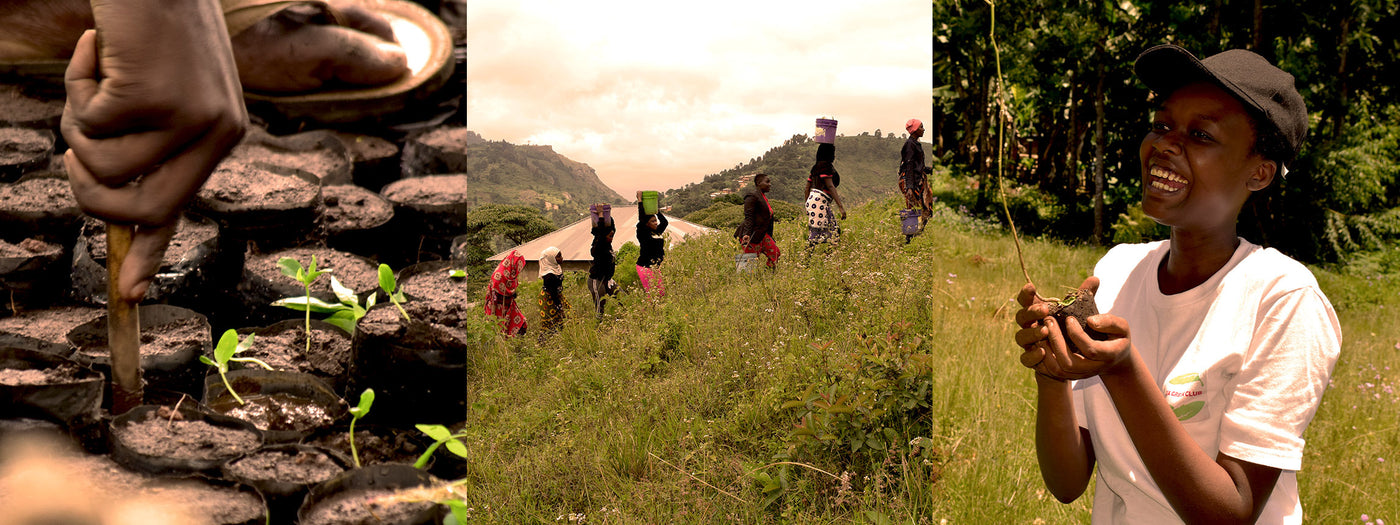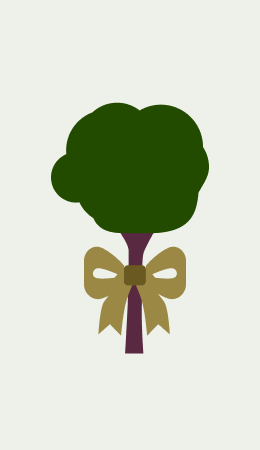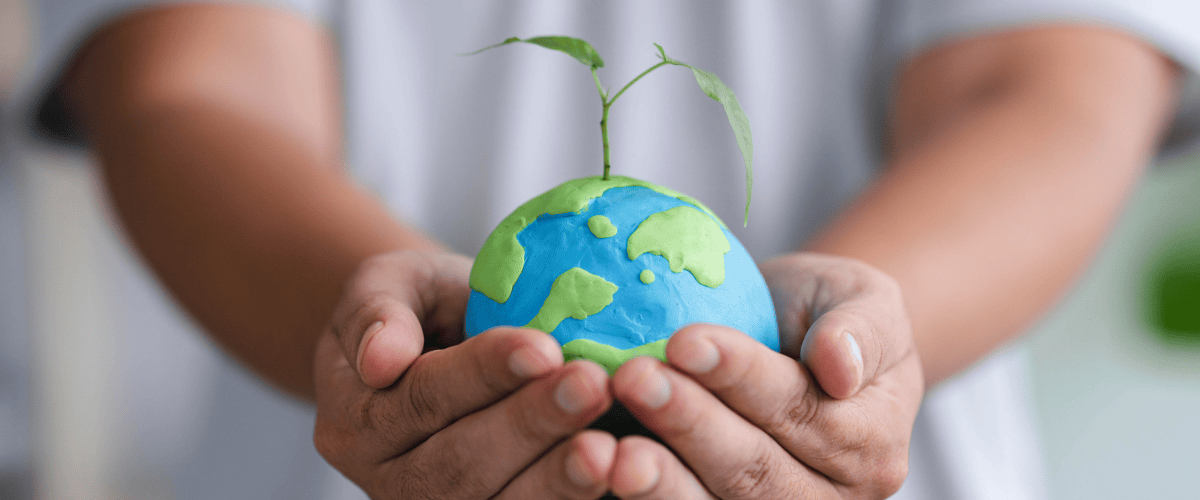Your impact around the world - where your trees are growing & changing lives

Dear tree friends,
In this blog post, we’re really excited to introduce you to our partner organisations that do the hard work for us on the ground in Nepal, Madagascar, Haiti, Ethiopia, Malawi, Uganda and Tanzania. We take great care in only selecting projects that meet our quality criteria and go beyond the single tree: they are about engaging local communities, restoring the ecosystem in the long term and furthering the idea of sustainable development for all human beings, according to the UN Sustainable Development Goals' motto "leave no one behind". All our partners inspire us day after day with their commitment and their incredible success stories.
Having said that, we first look at Ethiopia, one of the poorest countries in the world. The country on the Horn of Africa has about 102 million inhabitants and is three times the size of Germany. Almost a third of the Ethiopian population lives below the poverty line and in the Human Development Index 2019, which looks at factors such as education, income and health, Ethiopia ranks 173 out of 189. In the Ethiopian highlands in particular, food insecurity has prevailed for decades, which is primarily the result of strong population growth, increasing deforestation and unsustainable practices in agriculture. This is exactly where our partner Green Ethiopia has been active for over 20 years, when the Swiss entrepreneur Kurt Pfister travelled to the country and realised: Something has to be done here. Since then, numerous projects have been implemented, aiming at improving soil, water and food security in parallel to reforestation. Of special note is the impact of their work on the living conditions of women and the younger gerneration, with women benefiting from donkey projects and receiving income from afforestation, while "landless youth", i.e. young people without land inherited from their parents, receive a responsibility and income as guardians of the newly created forests. Reforestation creates new, fertile areas where birds once again live and nectar makes other forms of agriculture possible improving food security. You can see here: It's not about the individual tree – it’s about many trees that can trigger a cycle that sustainably benefits not only our climate but the local community, combats poverty and creates habitat.
Next, we head to Malawi, a landlocked country in southeast Africa and, like Ethiopia, a very underdeveloped country (ranked 171 out of 189 on the HDI). Malawi is home to about 17.5 million people but the population is growing rapidly, posing major food security challenges. In northern Malawi, Wells for Zoë an organisation that has been in existence since 2005, works with a focus on reforestation, girls' education and water supply. Not only have over 3 million indigenous trees been planted in the 2020/2021 Season, but since 2012 they have supported approximately 250 girls in secondary school each year along with the installation of approximately 350 of their Zoë pumps each year. Since its inception, the Irish organisation has been able to provide 750,000 people with access to clean water; an incredible achievement.
We continue to Tanzania, a country in the east of Africa with 50 million inhabitants, incredible natural wealth and, compared to the previous countries, a stable political and economic situation. But there is also a lot to do here: In the north-east of the country, near Lushoto, lie the Usambara Mountains, a beautiful and rich region. Here, not far from the coast of the Indian Ocean and the border to Kenya in the Tanga region, our partner Friends of Usambara Society operates. The organisation is closely linked to the region and has already planted over 20 million trees since 2008 to counteract deforestation. Through various school projects, the organisation brings education in sustainability and environmental protection to the youngest children; in addition, the Friends are committed to the long-term protection of the Usambara Mountains and have founded the Cultural Heritage Centre to also make foreign visitors aware of the importance of cultural protection. The Usambara Mountains, with their biodiversity and cultural heritage, are the Friends' home - and their commitment to preserving and restoring it is inspiring.
For our next organisation, we look at their neighbouring country, Uganda. Although Uganda is rich in natural resources, it is still one of the world's less developed countries and ranks only 162 out of 189 on the HDI. 80% of the population works in agriculture, which is the most important source of income. But this is exactly where the problem lies: due to inadequate production methods and deforestation, the income basis of many Ugandans is threatened in the long term. Our partner Trees for the Future has recognised this problem and developed a solution for it with the innovative approach of the Forest Garden, which combines reforestation with nutrition. Here, in a four-year programme, families learn about sustainable land management by planting their own Forest Garden of trees and fruits, managing it, learning all about its care and thus being able to draw their food and income from their own garden in the long term, while the trees make the soil richer and improve the climate. The families even receive a diploma at the end and develop long-term sustainability goals that ensure the survival of the Forest Garden. This approach has proven itself over the years and has not only changed the lives of countless people for the better, but has also decisively strengthened the idea of sustainable development and the convergence of ecological and social goals. Deforestation is counteracted by reforestation and learning - a great cycle towards a better future.
We work with our last partner organisation in three countries: Madagascar, Nepal und Haiti. Staying in Africa for now, we first look ar Madagascar, the fourth largest island in the world on the east coast of Africa. This poverty-stricken country has incredible biodiversity, but has already lost four-fifths of its forest - a major threat to one of the world's biodiversity hotspots and to the local population. That's why our partner Eden Reforestation Projects has made it its mission to tackle the sad 20% forest cover and has already planted an incredible 500 million trees in Madagascar.
Eden is also active in Nepal: since 2015, the organisation has been working in three different regions of the country, including a partnership with Chitwan National Park, a World Heritage Site in Nepal. By partnering with the national park system, Eden helps create and protect a reforested buffer zone, which in turn is important for protecting wildlife habitat. Most rural villagers in Nepal depend directly on their natural environment for food, shelter and income - making it all the more important to keep it intact. Since 2015, Eden has planted almost 7 million trees in Nepal.
In Haiti, Eden's work is just beginning: 98% of the forests in the Caribbean country have already been cut down. The UN estimates that 30% of the country's remaining trees are destroyed each year, largely because the majority of the Haitian population uses charcoal as their primary cooking fuel. Deforestation exacerbates the effects of cyclones and contributes to soil degradation, leaving people with no way to grow their food. That's why Eden works here primarily with local farmers to plant trees and break the trend of deforestation by rethinking. Already over 2 million trees are helping to slowly improve the situation.
All five of our partner organisations are doing hard and incredibly valuable work to enable local reforestation, fight poverty and preserve ecosystems. Thanks to your commitment to a better future, our partners can continue and expand their work - and for that we say thank you. We hope that we have been able to give you a little bit of insight into the work on the ground. We also look forward to continuing to share stories of our local partners through our blog and social media channels, reporting on seasonal planting work and introducing you to individuals whose lives are being changed thanks to your contribution. So much has already been achieved - and there is still so much to do!
From trees with love,
Your Grow My Tree Team
Comments (1 answer)
write a comment
Comments are approved before posting.









29 July, 2021
Denílson
só tenho agrader vc que toma conta meio abiente. o planeta agradece. se todo mundo fazesse um pouquinho o seria muito mais.